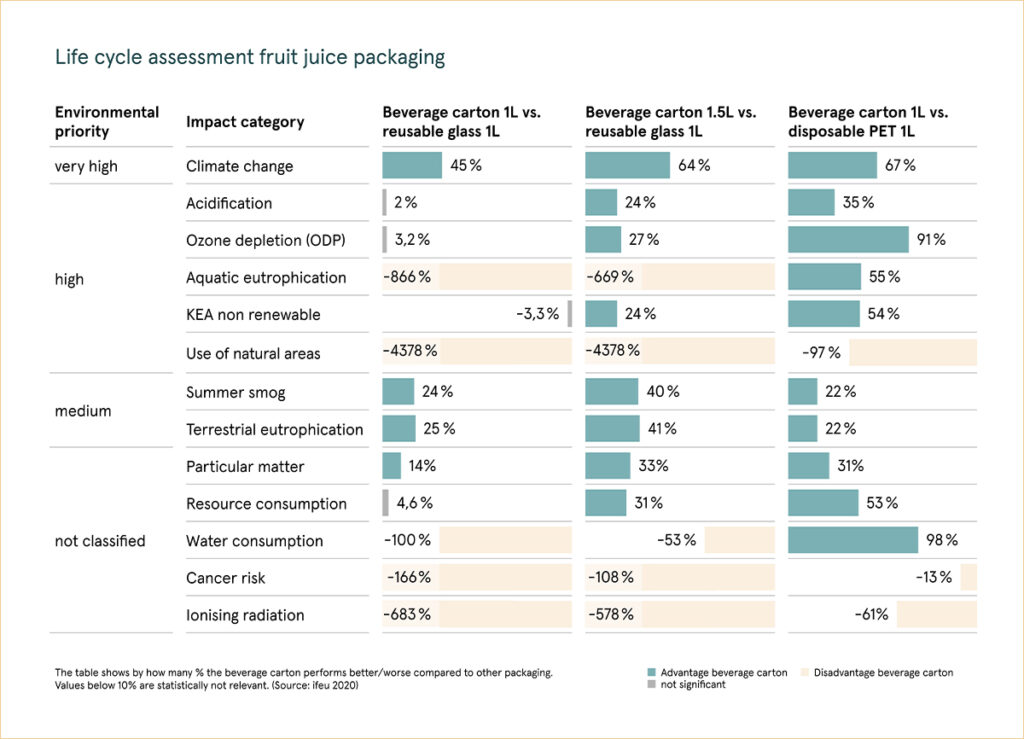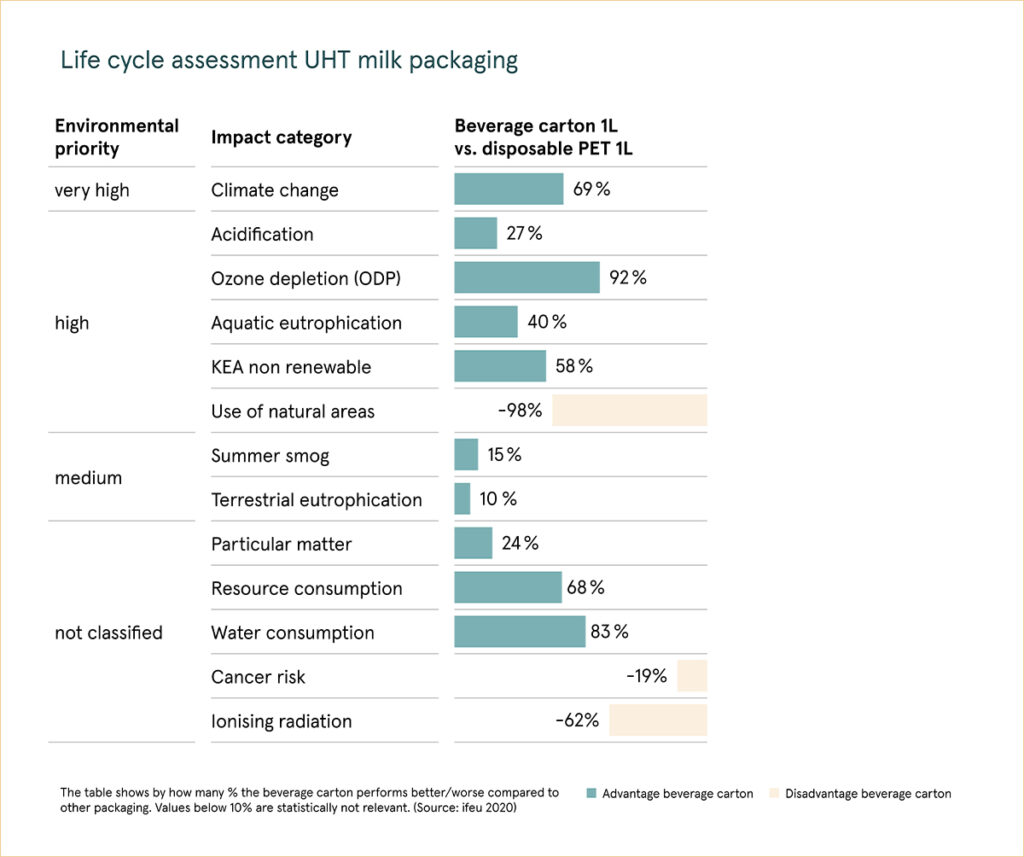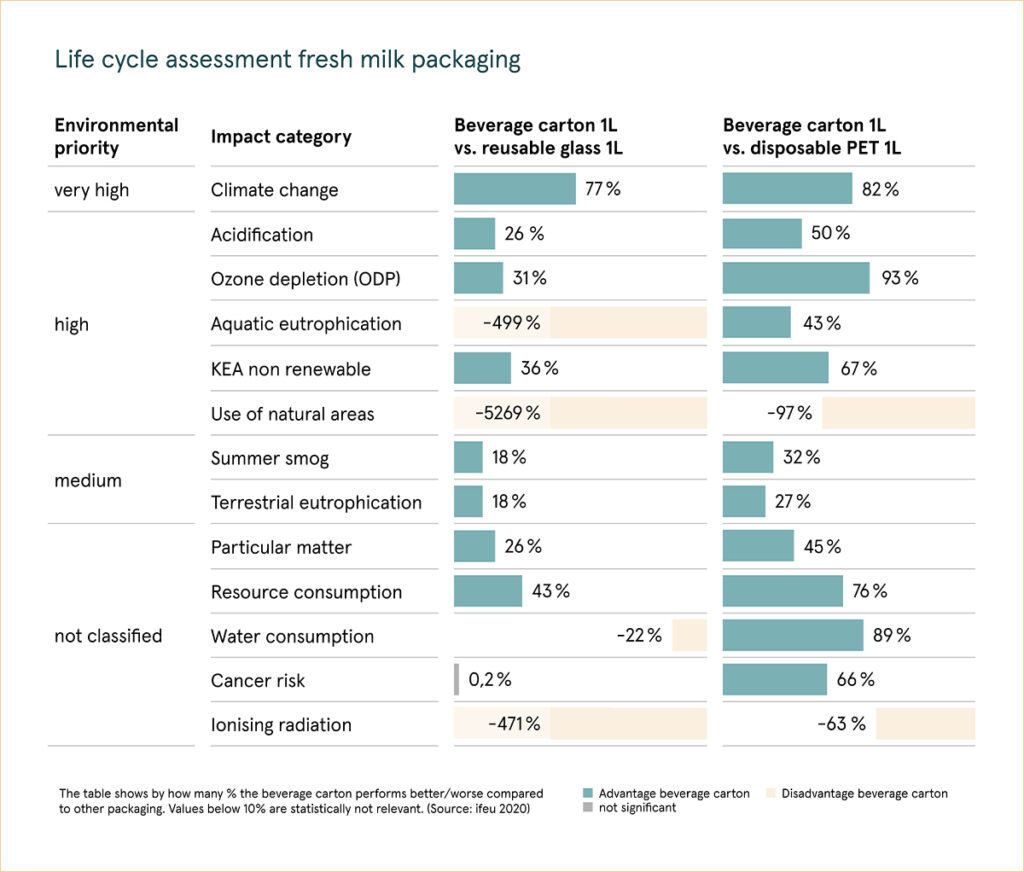Trendsetting in terms of sustainability – Leading the way in sustainability
The final report of the study, which has been created in accordance with the new methodological requirements of the UBA and approved by the latter, has been reviewed and updated in 2020.
Object of investigation and result
UHT milk
Fresh milk
Juices and nectars
Clear advantage in terms of climate protection

The results across all impact categories
Who is the FKN?
The FKN has two subsidiaries:
ReCarton GmbH has been handling the recycling of used beverage cartons from the Dual System since the early 1990s.
What exactly was examined?
IIt contains all environmental burdens during:
Minimum Standard – Why?
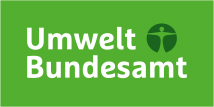
After three years of research, the Federal Environmental Agency published extended requirements for the preparation of life cycle assessments (UBA text 19/2016). It contains mandatory rules of procedure, which standardise the quality of the studies, bring their results to a comparable level and enable the development of verifiable assessments.
Beverage carton producers are first in this sector to meet these new requirements. Due to the pilot character of the study, the UBA was involved in the process from the beginning on.
What about recycling?
Despite the high recycling rates (currently 77.7%), the influence of recycling on the overall ecological result for beverage cartons is relatively low.
Don't miss out on any news and stay up to date with our newsletter. Subscribe here:
New on the shelf
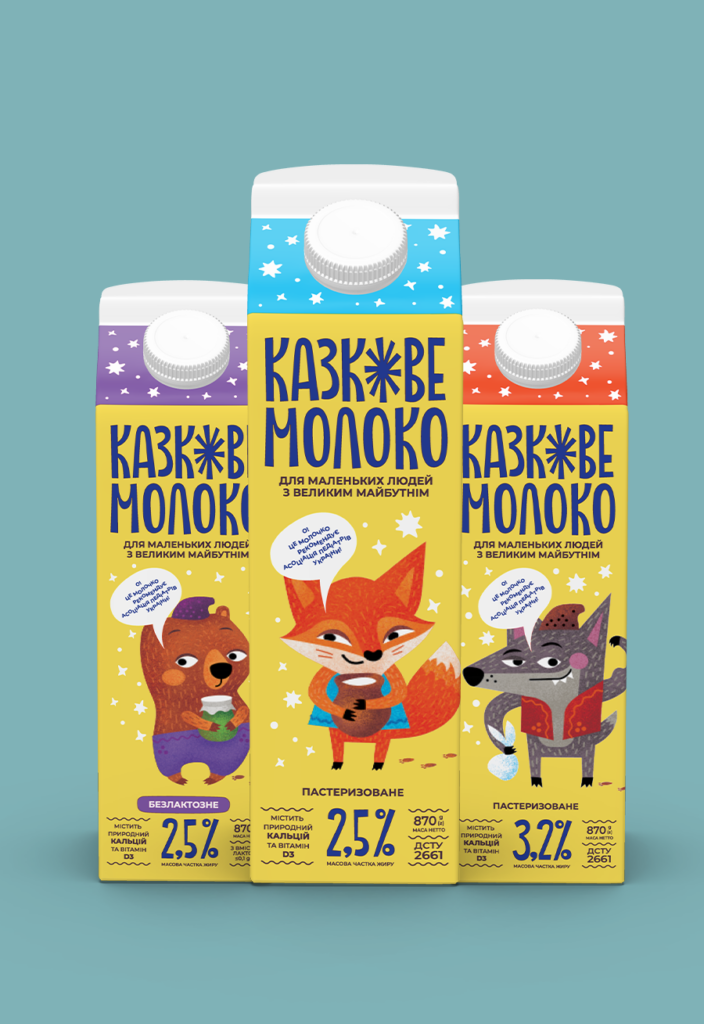
Molokia, Ukraine
Ukrainian manufacturer Ternopil Dairy has updated the designs of its fairytale milk for the Molokia brand with new characters. Wolf, bear, fox, hedgehog, stork and rabbit are now the stars of the packaging. There is also a lactose-free milk. The products are recommended by the Association of Paediatricians of Ukraine.
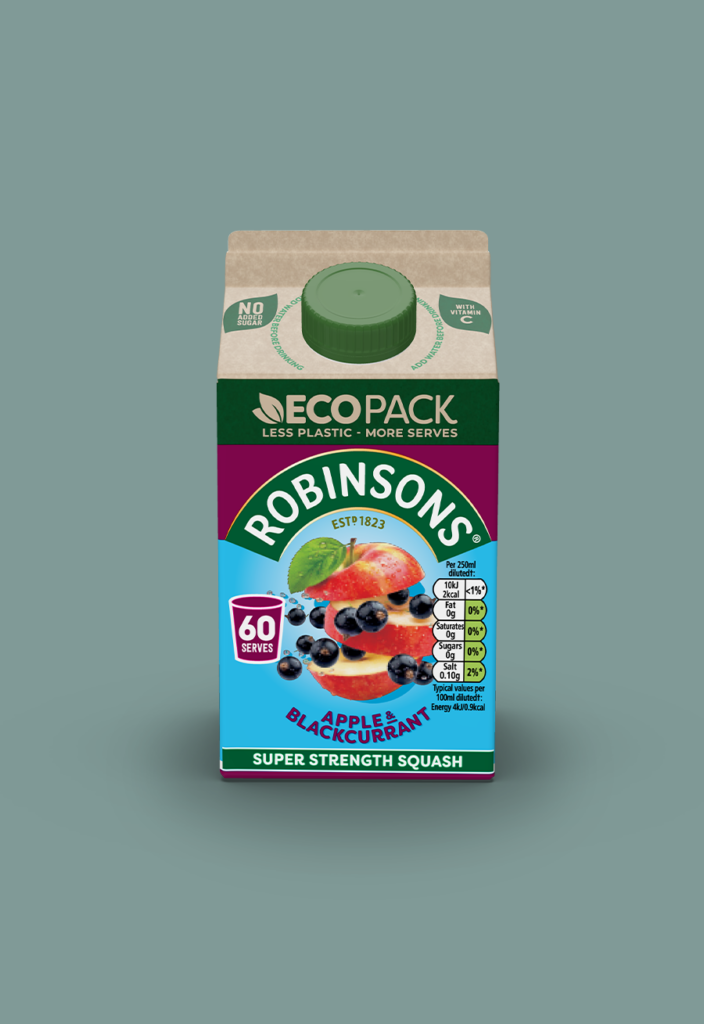
Robinsons, UK
“Less plastic – more serves” – Britvic launched super strength concentrated squash for the Robinsons brand using the 500ml Pure-Pak Classic carton. The result. 60 serves per 500ml and 85% less plastic per serve.
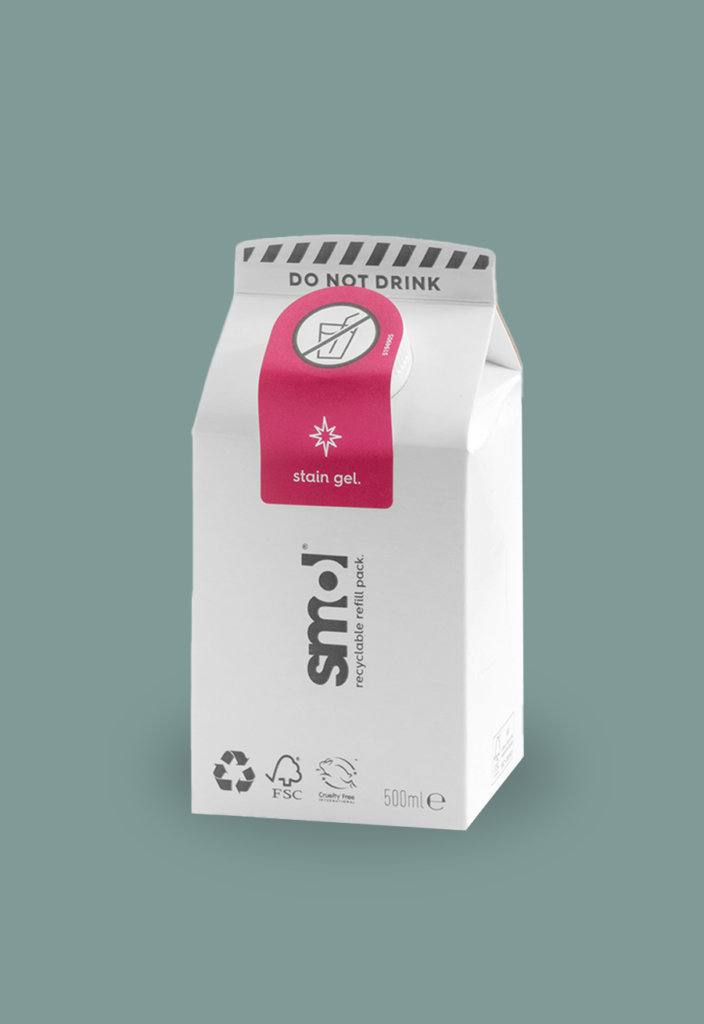
smol, UK
smol’s refill carton range continues to grow. Following dishwashing liquid and fabric softener, stain remover has now also been available in practical cartons since the start of 2024. The original bottle for applying and dispensing the liquids is made from 100% recycled plastic.
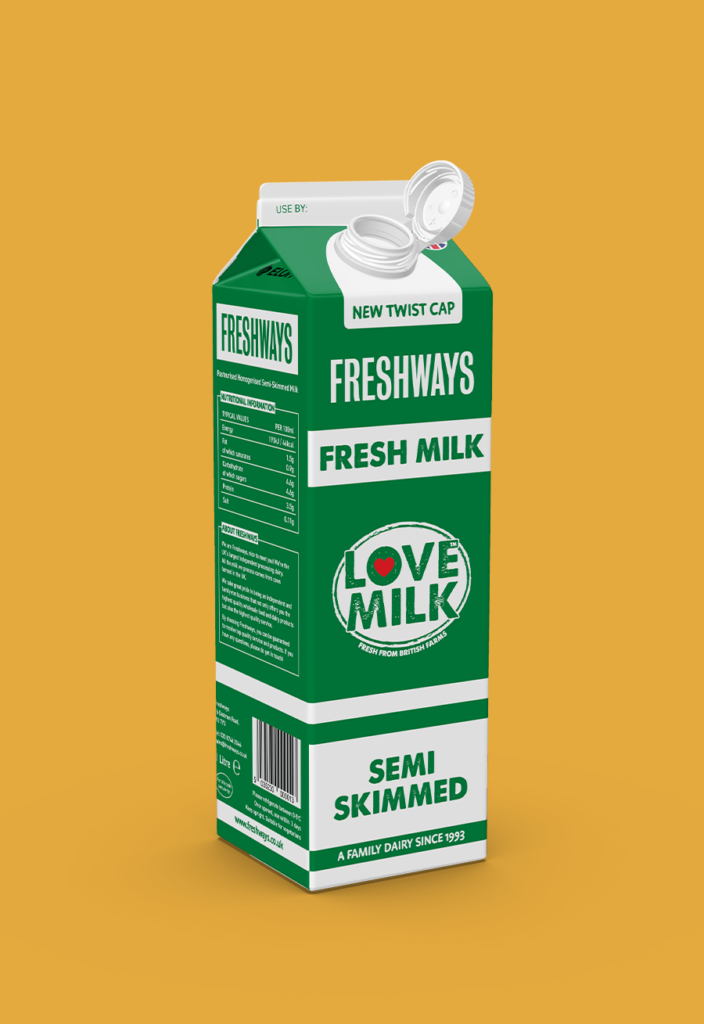
LoveMilk, UK
In response to growing consumer concern about plastic waste, the UK’s largest independent dairy launched cartons with tethered caps for its fresh milk products in the food service sector. This will significantly reduce the amount of plastic used in Freshway’s packaging.
